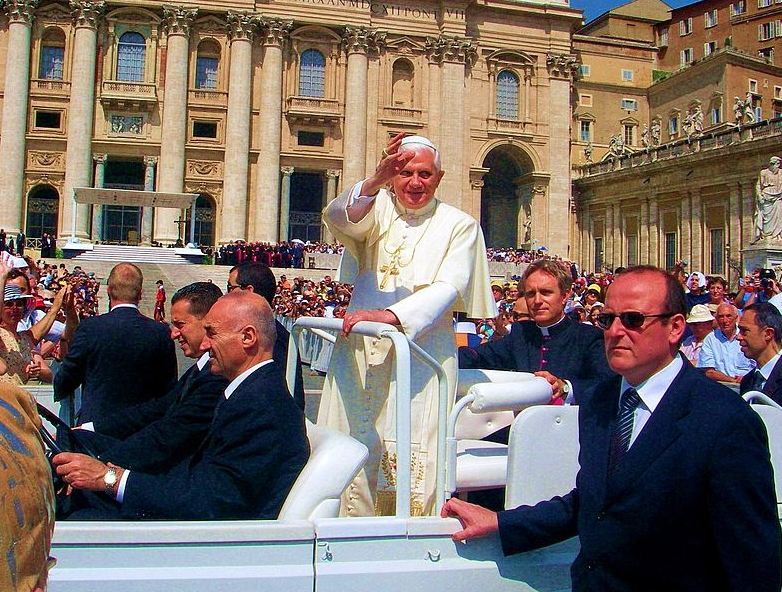Contributing Writer
For the first time in over 600 years, the head of the Catholic Church, the Pope, has voluntarily ceded power before death. Pope Benedict XVI (real name Joseph Razinger), addressed thousands of supporters amassed in Vatican City Thursday for the last time as Pontiff.
“Thank you very much for the friendship,” he forwarded to the avid masses. The Pope discussed how his resignation was only the first step in his so-called “pilgrimage,” moving on to a humble existence within the confines of his new home, Castel Gandolfo in Rome. His attire will now reflect his transformed living — a simple, white cassock instead of his papal clothes.
The sheer precedent of this occurrence sheds controversy on Benedict’s real purpose behind stepping down as the Church’s leader. He has repeatedly said that his age, combined with ailing health, has made the demands of the job overbearing; he has exhibited a “lack of strength in mind and body.” This sentiment was echoed by a former Swiss Guardsmen (the Pope’s personal bodyguards) who dealt with Razinger as he ascended to the papacy.
Poised to foul the pomp and circumstance, the media has latched on to yet another church sex scandal that has recently come to light. A network of gay priests has been uncovered through blackmail from a series of prostitutes. The Archbishop of Scotland, Keith O’Brien, has been accused of covering up a prior relationship with another priest decades ago. With this news, Pope Benedict sped up the resignation process for O’Brien while ensuring the archbishop could not participate in the proceedings of the College of Cardinals, the body in charge of selecting the new Pope.
The Catholic Church is in charge of 1.2 billion followers, making it the most popular Christian religion in the world. The Church’s institutions and hierarchical structure have scantly changed for over 2,000 years (case in point: 265 Popes have transferred power with little disruption). What is changing, though, is everything and everywhere around Vatican City. With this said, the Church should be in crisis mode at this point for several reasons.
First, the Church has to deal with the increasing secularization of the world — specifically in the United States. Western European countries have cut ties with their respective denominations of Christianity long ago. The new American generation is growing up amidst a fading presence of religion, a “post-materialist” (eco-conscious) worldview, and the domination of “hot-button” issues, (abortion and gay rights), which highlight the Church’s archaic views. Their parents’ authority, grounded in traditional gender views, no longer offers legitimacy.
Second, the Church faces leadership issues and a shortage in priests, deacons, and nuns dedicating their lives to Catholicism and Christ’s teachings. Over the past 10 years, there has been a 30 percent decrease in the amount of priests who entered seminaries across the United States. At the same time, the Church has to grapple with Catholicism in the third world — emerging leadership in Africa, Latin America, and parts of Asia. There has been a strong call for increased representation from the Third World. This would help transform Catholicism’s message of peace and love for everyone — not just Caucasians — in the eyes of God.
As a Catholic, I don’t necessarily agree with every Church action or doctrine. It is sad to see the Church transformed into more of a political entity, intent on protecting its members rather than doing the right thing. It is quite embarrassing to have the Church be constantly on the defensive, trying to deflect scandal after scandal. With its image already tarnished, it would make sense for the Church to come clean, once and for all.
To me, religion, not just Catholicism, means applying the Church’s message based on the scriptures to your own life. I think we should follow the doctrines and messages that make sense to us within the scope of our existence. They should not intersect, nor compromise, our political convictions. Catholicism is not in need of more faith, but less bureaucracy, scandal, and corruption. After all, it’s about the teaching, not the establishment itself.
Questions? Email Kyle at kgraczyk@fandm.edu.
